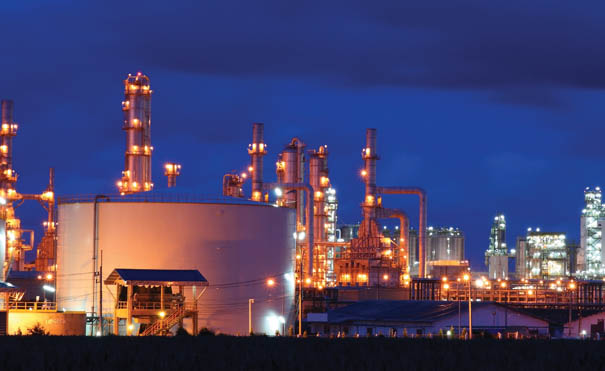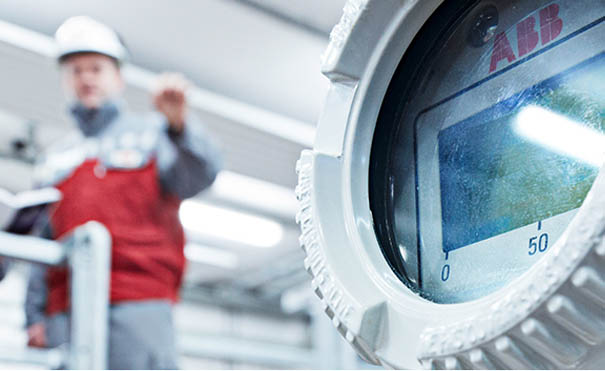Instrumentation Blog
Treating industrial wastewater is both costly and challenging. Effluent liquids or slurries from petrochemical plants typically comprise excessive levels of suspended particulates, volatile organic compounds (VOCs), and heterogeneous fluids.
These may be abrasive or corrosive in nature and can significantly impact the performance of processing or process monitoring equipment. Contact level sensors, for example, may become fouled by one or more constituents in the measured media, resulting in a significant rise in measurement inaccuracies.
API oil-water separators are one of the fundamental components used in wastewater treatment for petrochemical facilities such as oil refineries and natural gas processing plants. They operate on the principle of Stokes’ law, separating the constituent parts of complex emulsions based on their density and size. Suspended solids typically sediment and sink to the bottom of the separator while oils rise to the surface. The fluid content is then separated and discharged into separate storage tanks; the volumes of which are monitored using one of several level sensor technologies.
The limitations of conventional level sensor technologies
Conventional level sensors are limited for application in API oil-water separators due to their operating principles, which typically measure fluid levels as a function of either buoyancy or relative to the dielectric constant of the measured media. Buoyancy level sensors can be problematic as they make no contingencies for retentate media that has built-up on vessel walls. This can adversely skew level measurements and lead to measurement errors. The same could be argued of magnetic level sensors.
Innovative level sensors operating on the principles of laser time-of-flight analysis have revolutionized process control for API oil-water separators. Elimination of maintenance requirements, improved measurement accuracy, and reliable detection of liquids irrespective of their dielectric constant are just a few of the benefits offered by laser level sensors.
LLT100 laser level sensor for API separator storage vessels
The LLT100 is an advanced laser level sensor that can be installed into API separator storage tanks without prior silo mapping. It is equipped with a narrow laser beam (905nm) that can be aimed with high-precision, removing false echoes from the measuring process which typically arise from local variations on nearby structures. This is further supported by the small diameter interface of the level sensor’s collecting lens, which is integrated into a compact housing approved for use in explosive conditions.
This unique laser level sensor is available as three distinct options:
- An affordable yet powerful base level transmitter suitable for a wide range of applications;
- A high-pressure level sensor fitted with a choice of pressure rated flanges;
The high-pressure-rated model is ideal for use in API separators and resultant storage vessels. It provides accurate, real-time measurements of liquid volumes to an accuracy of within 11mm, using a combination of advanced laser pulses, efficient detection, and integrated calculations. These are unaffected by the dielectric constant of the measured fluid, or the presence of retentate media on the vessel walls.
Laser level sensors from ABB
ABB is a global leader in the development and supply of advanced level measurement technologies for demanding industrial processes. ABB laser level sensors are suitable for accurate measurements of demanding process media, with considerations for harsh measuring conditions.
Differential pressure sensors are critical components for process monitoring, providing reliable quantitation of the difference between the applied force at two separate points in a contained system.
This may include monitoring the difference in pressure between the fluid and the headspace in a container, or between two points in a flow system.
Monitoring differential pressure is critical for process control in an array of industrial sectors. They can be used in applications as varied as level measurement in fuel distilleries and flow monitoring in crude oil extraction pipes. This versatility represents broad measurement parameters that may include extreme peak temperatures and complex sample materials.
Such demanding measuring conditions can be severely challenging for even the most robust pressure sensors, which sample process conditions via narrow bore impulse lines. These small diameter components can become fouled or blocked by a build-up of particulates. In low-temperature applications, impulse lines can freeze. Either of these scenarios can have significant ramifications to the accuracy of measuring results and the maintenance requirements of the differential pressure sensor.
Unblocking impulse lines can be costly and time-consuming. To avoid emergency maintenance and eliminate measurement inaccuracies, facility operators typically implement periodic cleaning that causes mechanical downtime and lower throughput.
ABB’s revolutionary preventative maintenance
Preventative maintenance of differential pressure sensors is essential but inefficient. To counteract the dual issue of costly mechanical downtime, ABB engineered a technology known as Plugged Impulse Line Detection (PILD). While this does not eliminate the need for routine cleaning of impulse lines and regular pressure sensor diaphragm maintenance, it does provide a basis for more efficient predictive diagnostics.
PILD technology uses an algorithmic method to predict blockages in impulse lines based on frequency detection. This monitors noise generated by pressure fluctuations within the system and characterises these frequencies against a reference of normal operation. While the differential pressure sensor is in normal operation, the PILD diagnostic software continuously monitors the noise spectrum of the system to detect deviations from the norm. The sensitivity of this technology is such that it can detect variations in the noise spectrum before pressure measurements are even affected.
This diagnostic software is loaded into every ABB 266 differential pressure transmitter.
Benefits of PILD pressure sensors
Differential pressure sensors enabled with PILD diagnostics can protect the integrity of measurement results in demanding process conditions. They quickly detect anomalies in normal working conditions and process an alert for the specific impulse line that is affected. This enables plant operators to detect and eliminate problems from the measuring chain before they even arise.
PILD pressure sensors from ABB
ABB supplies an extensive range of PILD-enabled differential pressure sensors. The 266 series boasts a measurement accuracy of up to 0.025%, with a choice of direct or remote mounting and varied options of multi-sensor technologies.
The entire 266 series of differential pressure sensors from ABB is enabled with PILD diagnostics, but this software may be unsuitable for your distinct application requirements.





